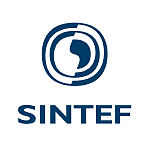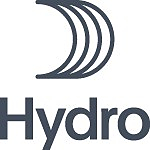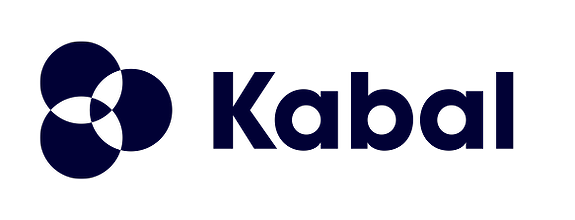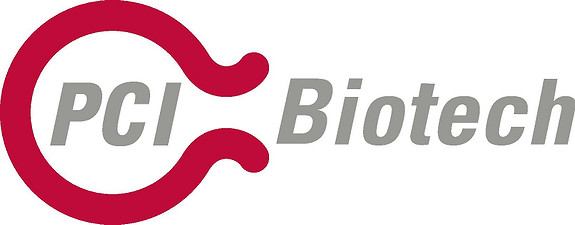
Postdoctoral Fellow in Prehistoric Archaeology
- Arbeidsgiver
- Universitetet i Oslo
- Stillingstittel
- Postdoctoral Fellow in Prehistoric Archaeology
- Frist
- 20.03.2025
Beskrivelse
We invite applications for a 3-year position as Postdoctoral Fellow in prehistoric archaeology at the Museum of Cultural History, University of Oslo. The successful candidate will take part in the project Social Complexity and Population Entanglements in Norway 2500-1000 BCE: Understanding new bimolecular datasets through a humanist lens (SCAPES), funded by the Norwegian Research Council as a Research Project for Scientific Renewal, Groundbreaking Research.
The successful candidate will be based at the museum's Department of Archaeology, with office facilities in downtown Oslo.
The appointment is a fulltime position for the duration of 3 years. An additional scholarship for a research stay abroad can be applied for through the Norwegian Research Council (see below).
The main purpose of a postdoctoral fellowship is to provide the candidates with enhanced skills to pursue a scientific top position within or beyond academia.
The postdoctoral fellow holder will have successfully defended his/her PhD, authored high-quality publications, and demonstrated intellectual drive and cooperative skills in teamwork. The candidate must be motivated to contribute to the scientific goals of the SCAPES research group. Candidates educated in prehistoric archaeology or related fields are welcome to apply.
Project description
SCAPES addresses the fundamental orientation towards agriculture, sedentism and social stratification that took place on the Scandinavian Peninsula during the period 2500-1000 BCE. The project brings together collaborators in archaeology, genetics, isotope studies and geochemistry to provide an interdisciplinary and innovative research environment that can illuminate the social and economic processes behind population change. The project aims towards a deeper understanding of what this transitional period meant for individuals and groups. To this end, the project combines the latest aDNA results with multi-isotope methods and traditional archaeological analysis, contextualised within a humanistic, theoretical framework.
The project uses a work package (WP) design. On a background of environmental proxy data (WP1), the project will investigate sedentism and ritualization (WP2) as well as mobility and facilitating technologies (WP3). This will be synthesized to inform a novel perspective on social organization and landscape-use, feeding back into the international discourse on biometrics' contribution to heritage studies (WP4). The postdoctoral fellow’s main contributions will be split between WP2 and WP3, with a particular responsibility for data collection and management, spatial analysis/modelling and maps (using GIS software). The postdoctoral fellow will also have responsibilities when it comes to dissemination of the project results, in collaboration with the project manager, PIs and other colleagues in the project group.
WP2 approaches subsistence systems and land-use and explores variability in ritual expressions and how changing entanglements between humans, wild and domestic animals impacted everyday lifecourses. Burials and depositions are to be analysed, to explore lived experiences and the social significance of different ritescapes. WP3 aims to identify regional centres specialised in boat building and seafaring, inland and alpine routes related to transhumance and hunting, and connectivity between communities on a landscape level. An important aim is to provide insight into how social and physical mobility created variations in social organisation and production.
The full project description will be made available upon request.
SCAPES is a transdisciplinary and collaborative project involving partners from three Norwegian universities: The University of Oslo/Museum of Cultural History and Department of Archaeology, Conservation and History, NTNU University Museum, the University of Stavanger/Museum of Archaeology, the Institute for Energy Technology, and the Max Planck Institute of Geoanthropology.
More about the position
The successful applicant will form part of a research environment comprising the six academic partners and a project team consisting of altogether ten researchers, as well as a steering group of five internationally renowned scholars. The holder of the position will join the Department of Archaeology at the Museum of Cultural History and be part of the multifaceted research environment of the museum and take advantage of UiO’s leading position in digital humanities.
The postdoctoral fellow is expected to work with research questions and deliverables (D) addressed in WP2 and WP3, and in particular: D6. A synthesis of current knowledge of Bronze Age ritescapes, D8. Assessment of similarities and differences in depositional practice across different arenas and regions, D9. Model maritime routes and their connectivity between nodal zones along the coast and inland water and river systems, and D10. Activation of new archaeological data from highland surveys in the debate on mobility, hunting and transhumance in the Bronze Age.
The candidate will get the opportunity to develop an independent project, but will be expected to conduct the following tasks, in collaboration with the project group:
- Collaborate closely with PIs in WP2 and 3 to accomplish deliverables D6, D8-10
- Collect and manage project data in a database
- Conduct spatial analysis, model communication routes, and generate maps for the project
- Collaborate with the project group and UiO’s communication team to co-develop a popular podcast based on the project results
- Co-organise project workshops
- Contribute to the dissemination of project results through the writing of articles and editorial work with a project anthology
One of the purposes of the fellowship is to qualify researchers for work in higher academic positions within their disciplines, in which international experience is an important aspect. The Research Council has a scheme for the funding of research stays abroad for postdoctoral fellows. In addition, it is possible for the successful candidate to apply for funding for an extension of the fellowship period for postdoctoral fellows corresponding to the length of the stay abroad, minimum 3 and maximum 12 months.
All projects receiving funding from the Research Council are required to comply with the provisions of the regulations of the Act. It is mandatory for postdoctoral fellows funded by the Research Council to draw up and submit a professional development plan.
The postdoc fellow will be expected to start as soon as possible and at the latest by October 1, 2025.
Qualification requirements
- Applicants must have completed a Norwegian doctoral degree or a doctoral degree recognized as equivalent to a Norwegian PhD in archaeology or a related field. Applicants who have yet to receive their PhD degree must document that the PhD thesis has been submitted. Appointment is dependent on the public defence of the doctoral thesis being approved
- Strong academic background in prehistoric archaeology or a cognate discipline, with demonstrated experience of work with large datasets, databases and spatial analysis and tools
- A track record of high-quality journal publication. For recent graduates, planned publications can be in manuscript form
- Fluent oral and written communication skills in English
- Applicants must be able to read and understand material written in Norwegian
Preferred selection criteria
- A solid grounding in and documented prior experience from research within the Nordic Late Neolithic and/or Bronze Age
- Familiarity with scholarship and methods from the natural sciences and/or relevant experience
- Good public presentation skills and experience with popular dissemination
- Documented experience with statistical analysis
In the evaluation of relevant candidates, emphasis will be placed on education, experience and personal and interpersonal qualities. Motivation, ambitions, and potential will also count in the assessment of the candidates. The best qualified candidates will be invited for interview.
Personal characteristics
- Collegiality and teamwork abilities
- Intellectual ambition and integrity
- Attention to detail and ability for interdisciplinary contextualization
- Personal drive and motivation towards the project
- Good organization and time management skills
We offer
- Salary NOK 579 700 - 667 700 per annum depending on competence and experience in position as Postdoctoral Fellow (position code 1352). From the salary, 2 percent is deducted in statutory contributions to the State Pension Fund
- Funds for research, travel, conference participation and dissemination, books and equipment
- A stimulating and international research environment
- A friendly and inclusive workplace allowing for a good work-life balance
- Good welfare schemes
- Opportunity of up to 1.5 hours a week of exercise during working hours
- Membership in the Statens Pensjonskasse, which is one of Norway's best pension schemes with beneficial mortgages and good insurance schemes
How to apply
Your application should include:
- Cover letter (statement of motivation and broader research interests, 1-2 pages)
- CV (summarizing education, positions and academic work)
- Research plan (maximum 3 pages) outlining how the candidate envisages completing the work to be undertaken during the course of the appointment term
- A complete list of academic works – published or unpublished – that you would like to be considered in the assessment (up to 5 items and not exceeding 150 pages in total). Co-authored works will be considered if submitted as academic works. If it is difficult to identify your contribution to joint works, you should attach a brief description of your contribution. Extracts from larger works such as PhD thesis can be submitted for consideration
- Copies of educational certificates (academic transcripts only)
- List of reference persons; up to 3 references (name, relation to candidate, e-mail and phone number)
When applying for the position, we ask you to retrieve your education results from Vitnemålsportalen.no. If your education results are not available through Vitnemålsportalen, we ask you to upload copies of your transcripts or grades. Applicants with education from a foreign university must attach an explanation of their university's grading system.
Application with attachments must be submitted via our recruitment system Jobbnorge, click "Apply for the position". All documentation must be in English or a Scandinavian language.
Inclusive worklife and diversity at UiO
Inclusion and diversity are a strength. The University of Oslo has a personnel policy objective of achieving a balanced gender composition. Furthermore, we want employees with diverse professional expertise, life experience and perspectives.
If there are qualified applicants with disabilities, employment gaps or immigrant background, we will invite at least one applicant from each of these categories to an interview.
We hope that you will apply for the position.
More information about gender equality initiatives at UiO can be found here.
General information
Applicant lists can be published in accordance with Norwegian Freedom of Information Act § 25. When you apply for a position with us, your name will appear on the public applicant list. It is possible to request to be excluded from this list. You must justify why you want an exemption from publication and we will then decide whether we can grant your request. If we can't, you will hear from us.
Please refer to Regulations for the Act on universities and colleges chapter 3 (Norwegian) and Guidelines concerning appointment to post doctoral and research posts at UiO.
The University of Oslo has a transfer agreement with all employees that is intended to secure the rights to all research results etc.
- Sektor
- Offentlig
- Sted
- St. Olavs gt. 29, 0166 Oslo
- Stillingsfunksjon
- Forskning/Stipendiat/Postdoktor, Annet
- FINN-kode
- 393633511
- Sist endret
- 17. feb. 2025 10:08
Mer som dette





